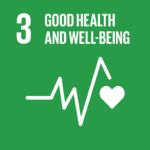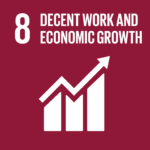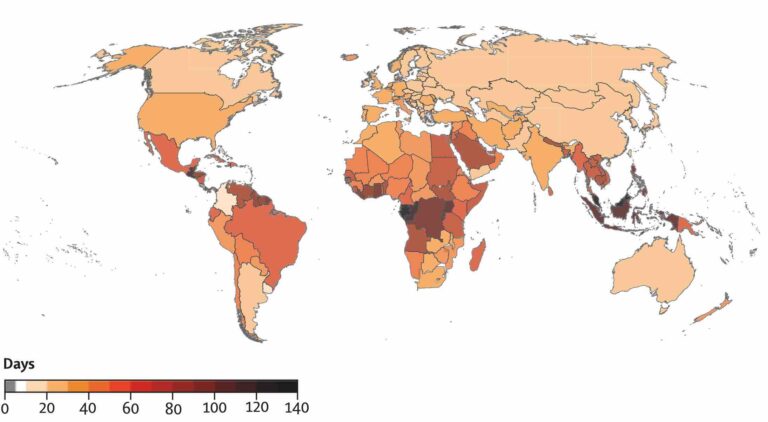Half a trillion work hours lost to heat exposure; a record-breaking 512 billion work hours were lost in 2023 alone.
A record-breaking 512 billion work hours were lost in 2023 due to extreme heat exposure, marking a significant setback for global productivity and health, according to a new report from the Lancet Countdown on Health and Climate Change. This ninth annual report, which tracks indicators of climate change’s impact on human health, reveals how rising temperatures are not only endangering physical health but also eroding economic stability, especially in low-income countries.
RELEVANT SUSTAINABLE GOALS




According to the report, agricultural workers in these countries were the hardest hit, losing around 8% of GDP due to heat exposure. The impact is part of a growing pattern of health inequality, as heat disproportionately affects the poorest communities, where infrastructure and access to cooling resources are often inadequate. “The impact on women and children is particularly severe,” notes Dr. Marina Romanello, lead author of the report, pointing out that in low-income regions, it is often women and children tasked with sourcing and managing fuels like biomass, which add another layer of risk to their daily lives.
Extreme Heat and Health Inequality: Unseen Threats to Vulnerable Populations
While wealthier nations have reduced deaths linked to fossil-fuel-derived pollution, thanks to coal phase-outs and stricter regulations, most low-income countries still rely heavily on “dirty” fuels, aggravating both health risks and environmental impacts. Heat exposure is particularly dangerous for outdoor workers, including 25% of the global population, who work in agriculture or construction. In 2023, the economic toll of lost productivity due to heat reached a staggering $835 billion globally.
Professor Ollie Jay, director of the Heat and Health Research Centre at the University of Sydney, explained, “The consequences of heat exposure are insidious, disproportionately impacting infants, the elderly, and people with pre-existing medical conditions.” Infants and adults over 65 endured a record high of 14 days of heatwaves per person, exceeding the previous year’s figures by over 20%. The report suggests that without more robust protections, rising temperatures will continue to threaten these vulnerable groups.
Food, Malnutrition, and Disease: How Climate Change is Worsening Health Risks
The Lancet Countdown report also addresses how climate-driven events like droughts and extreme weather threaten food security, with the area affected by severe droughts rising from 15% of global land in 1960 to 44% today. These extreme conditions are linked to increased food insecurity and malnutrition, affecting 151 million people in 124 countries in 2022 alone. Higher temperatures also drive the spread of diseases, particularly in coastal areas, where the risk of infections from Vibrio bacteria and mosquito-borne illnesses like dengue and malaria is rising.
In addition to physical illness, extreme heat affects mental health. High temperatures are linked to increased cases of post-traumatic stress disorder, anxiety, and depression, particularly in young people. As climate disruptions to food supplies and livelihoods worsen, low-income families are more likely to suffer, pushing children out of school and into the workforce.
Fossil Fuels and Climate Policy Failures: Funding the Crisis
The report points to fossil fuel companies as key drivers of the climate crisis, warning that their current strategies are incompatible with the Paris Agreement goals. In 2022, subsidies for fossil fuels exceeded 10% of national health budgets in 47 countries and reached 100% in 23. Romanello noted her concern that “governments and companies continue to invest in fossil fuel expansion,” sacrificing public health for short-term profit.
While some progress is being made in aligning health with climate policy, the report underscores the urgent need for more integrated strategies. Countries with health early warning systems saw a significant reduction in deaths from extreme weather, proving that proactive adaptation measures can save lives. But as Dr. Jeremy Farrar of the World Health Organization said, the health community has “been too slow to make the case that climate change is a health crisis.”
You may also be interested in :
Asia’s Food System Faces Triple Threat From Contamination Amid Climate Change




